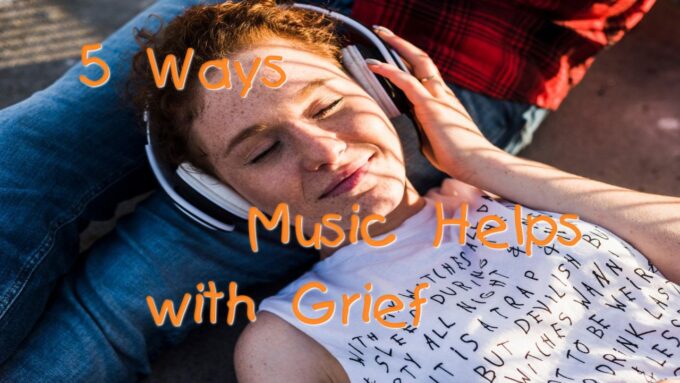
Music has long been recognized as a powerful tool for healing, and its ability to help with grief is no exception. In times of loss and sadness, music can provide solace, comfort, and a means of expression when words fail us. Whether it’s through lyrics that resonate with our emotions or melodies that evoke memories, music has a unique way of helping us navigate the complex journey of grief. Here are five ways in which music can assist in the process of healing and coping with loss.
Emotional Release

One of the most significant ways music aids in grief is by providing a channel for emotional release. When we’re grieving, we often experience a whirlwind of emotions – from sadness and anger to confusion and despair. Music can serve as a safe outlet for these feelings, allowing us to express ourselves freely without judgment. Whether it’s listening to a heart-wrenching ballad or belting out a song at the top of our lungs, music allows us to acknowledge and process our emotions in a healthy way. However, if nothing works, you can try online grief counseling at LunaJoy.
Comfort and Connection
Experiencing anxiety after a miscarriage or any other grief is often overwhelming and isolating. Music has a remarkable ability to provide comfort and foster a sense of connection, even in the midst of grief. Certain songs or pieces of music have a way of reaching into our souls, offering a sense of solace and understanding that transcends words. In times of loss, listening to music that resonates with our feelings can remind us that we’re not alone in our pain.
Memory and Remembrance

Memories play a central role in the grieving process, and music has a unique ability to evoke powerful memories and emotions. A particular song might remind us of moments spent with a loved one, evoking bittersweet memories that bring both comfort and longing. Creating playlists of songs that remind us of our loved ones can be a meaningful way to honor their memory and keep their spirit alive. Whether it’s playing their favorite songs or listening to music that reminds us of shared experiences, music can be a powerful tool for remembrance.
Distraction and Escapism

In the midst of grief, it’s important to allow ourselves moments of distraction and escapism, and music can provide just that. Losing ourselves in a favorite album or attending a live concert can offer temporary respite from the weight of grief. Music has a unique ability to transport us to another world if only for a brief moment, offering a much-needed break from the intensity of our emotions.
Hope and Resilience
Finally, music has the power to inspire hope and resilience in the face of grief. Whether it’s through uplifting lyrics or stirring melodies, music can remind us that there is beauty and joy to be found even in the darkest of times. Certain songs have a way of lifting our spirits and reminding us of the resilience of the human spirit. By immersing ourselves in music that speaks to our strength and perseverance, we can find the courage to face our grief with grace and resilience.
In conclusion, music offers a multifaceted approach to coping with grief, providing comfort, connection, and a means of expression when words fail us. Music has a unique ability to support us through the grieving process. By embracing the healing power of music, we can more easily walk the difficult path of grief and find moments of comfort and joy in the midst of pain.